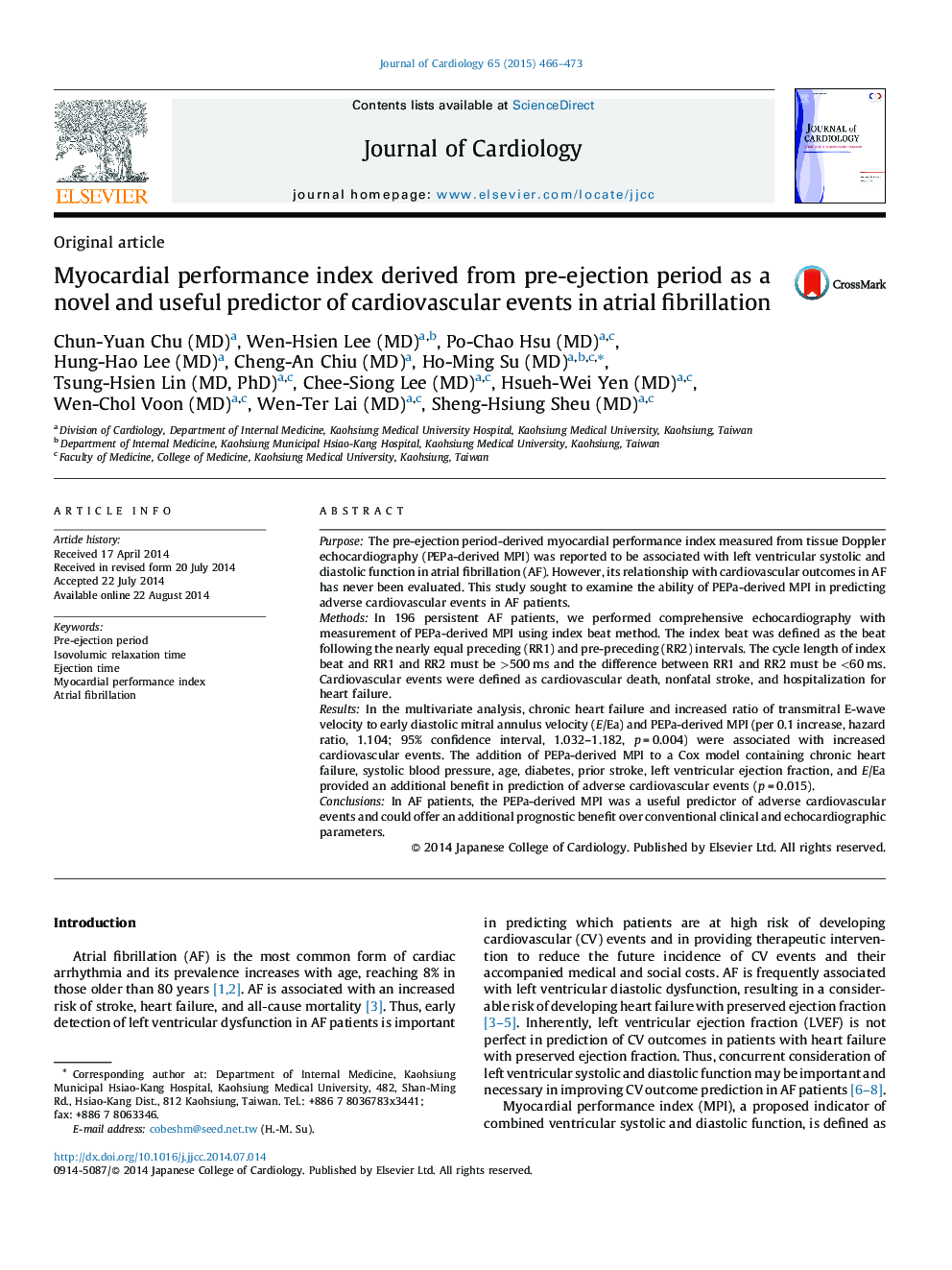| Article ID | Journal | Published Year | Pages | File Type |
|---|---|---|---|---|
| 5984022 | Journal of Cardiology | 2015 | 8 Pages |
PurposeThe pre-ejection period-derived myocardial performance index measured from tissue Doppler echocardiography (PEPa-derived MPI) was reported to be associated with left ventricular systolic and diastolic function in atrial fibrillation (AF). However, its relationship with cardiovascular outcomes in AF has never been evaluated. This study sought to examine the ability of PEPa-derived MPI in predicting adverse cardiovascular events in AF patients.MethodsIn 196 persistent AF patients, we performed comprehensive echocardiography with measurement of PEPa-derived MPI using index beat method. The index beat was defined as the beat following the nearly equal preceding (RR1) and pre-preceding (RR2) intervals. The cycle length of index beat and RR1 and RR2 must be >500 ms and the difference between RR1 and RR2 must be <60 ms. Cardiovascular events were defined as cardiovascular death, nonfatal stroke, and hospitalization for heart failure.ResultsIn the multivariate analysis, chronic heart failure and increased ratio of transmitral E-wave velocity to early diastolic mitral annulus velocity (E/Ea) and PEPa-derived MPI (per 0.1 increase, hazard ratio, 1.104; 95% confidence interval, 1.032-1.182, p = 0.004) were associated with increased cardiovascular events. The addition of PEPa-derived MPI to a Cox model containing chronic heart failure, systolic blood pressure, age, diabetes, prior stroke, left ventricular ejection fraction, and E/Ea provided an additional benefit in prediction of adverse cardiovascular events (p = 0.015).ConclusionsIn AF patients, the PEPa-derived MPI was a useful predictor of adverse cardiovascular events and could offer an additional prognostic benefit over conventional clinical and echocardiographic parameters.
